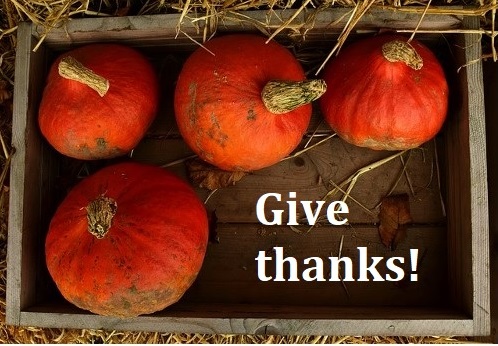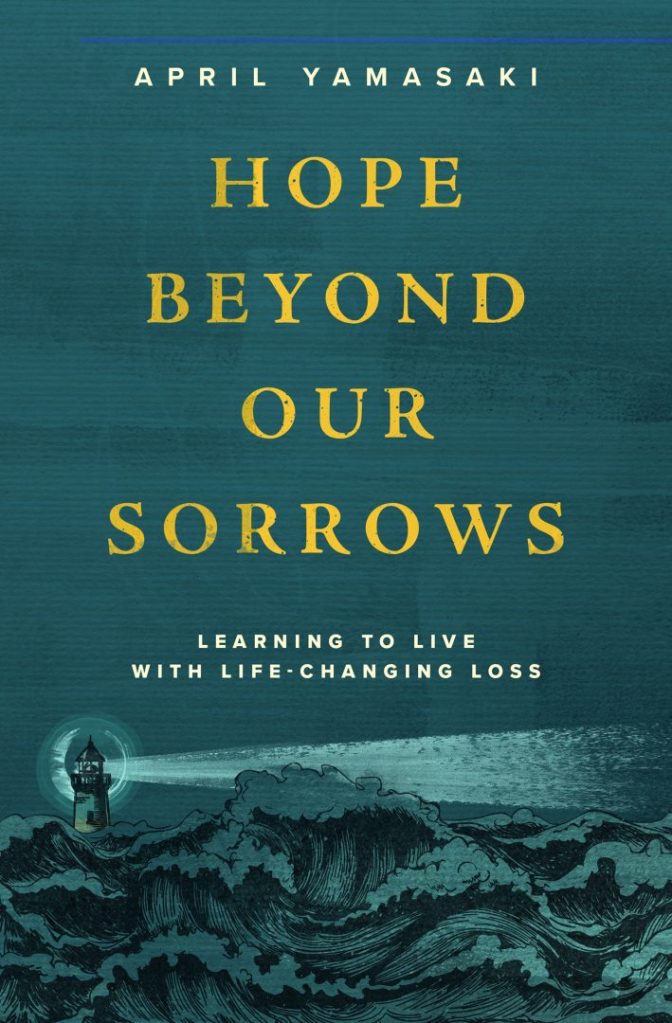Praise the Lord!
I thank the Lord with all my heart. . . .
Psalm 111 is one of my favourite psalms of thanksgiving, from these exuberant opening words of thanks, through the great works of God that form the centerpiece of the psalm, to the closing affirmation:
God’s praise lasts forever!
Here are five reasons to be inspired by this psalm:
Be inspired to give thanks with your whole heart.
 I love the way the psalmist gives thanks with ALL of his heart. This is no weak mumble of thanks out of habit or duty, but a whole-hearted, shout-out-loud whoop of thanks that sets the tone for the entire psalm. It’s as if the psalmist’s heart is so full of thanks that he can’t contain it, that it wells up from his inner being and releases a flood of words that turns into this psalm.
I love the way the psalmist gives thanks with ALL of his heart. This is no weak mumble of thanks out of habit or duty, but a whole-hearted, shout-out-loud whoop of thanks that sets the tone for the entire psalm. It’s as if the psalmist’s heart is so full of thanks that he can’t contain it, that it wells up from his inner being and releases a flood of words that turns into this psalm.
Frankly, that’s not where I’m at today. Yes, I’m thankful for many wonderful gifts—for this new day after a good night’s sleep, for people who love me, for faith and forgiveness, for food and home and physical safety, and so much more. Yet the cares of this world press in from around the globe and close at hand, so even though it’s Thanksgiving Day here in Canada, there’s a part of my heart that still feels heavy. I’m carrying lament today even as I give thanks.
And yet for me, this psalm still inspires, for it helps me look beyond what is happening in the world to what God is doing. “The works of the Lord are magnificent” (verse 2). “The Lord is full of mercy and compassion” (verse 4). “God’s handiwork is honesty and justice” (verse 7). Even when I have good reason to lament, I also have good reason to give thanks.
Be inspired to give thanks to God.
For the psalmist, giving thanks is clearly addressed to God. This is no vague sentiment directed to no one in particular. The psalmist knows God as “the Lord” (verse 1), who “sent redemption for his people” (verse 9). As part of God’s covenant people (verse 9), the psalmist is already in relationship with God and expresses his thanks in a personal way.
It’s been quite some time since I’ve written a psalm of thanks to God, as I haven’t been writing much poetry lately. But I still keep a gratitude journal, sometimes varying the format to keep things interesting. I like to include thanks to people too, but the psalmist reminds me of the primacy of giving thanks to God.
Be inspired to reflect on all God’s works.
Psalm 111 is just 10 verses, and the core of the psalm from verses 2-9 is a litany of God’s “wondrous works”:
- righteousness, mercy, and compassion (verses 3-4);
- providing food (verse 5);
- establishing his people (verses 6, 9);
- ruling with truth and justice (verses 7-8).
Today, God is still at work, and I too am thankful for the Lord’s mercy and provision—for my husband and me personally, for our church community, and yes, even in the wider world with all of its trouble, God still reigns.
Be inspired to share your thanks with others.
The psalmist begins with a personal word of thanks—“I thank the Lord with all my heart” (verse 1a)—but in the second half of the verse, it immediately becomes a shared experience—“in the company of those who do right, in the congregation” (verse 1b). Giving thanks is meant to be shared with others. What’s more, all of God’s good gifts are meant to be shared: food, covenant, mercy, compassion, honesty, justice, redemption.
So also today, we give thanks personally and with others, and we are meant to share God’s good gifts. That applies to God’s provision of material things like food, shelter, clean water, medical care, technology, and to spiritual matters of faith, forgiveness, the new life we can have in Jesus Christ—all these are meant to be shared.
Be inspired to give thanks for everything.
Psalm 111 is an acrostic psalm, where every phrase starts with a different letter of the Hebrew alphabet from beginning to end. It was a strict literary form that made the psalm easier to remember, and it was also a way of saying that something was complete. In English we might say something is all there from A to Z , and that’s the effect of a Hebrew acrostic. It’s as if the psalmist gives thanks for everything, from A to Z, from aleph to taw.
With that, Psalm 111 is complete, for the psalmist begins giving thanks with his whole heart, and ends giving thanks for everything. May we also be inspired to give thanks today!

Writing/Reflection Prompt: Which of these five inspirations from Psalm 111 most resonates with you today?
____________________
For more on writing and other acts of faith,
please sign up for my free email updates.
I’d love to stay in touch with you!



Please leave a comment: